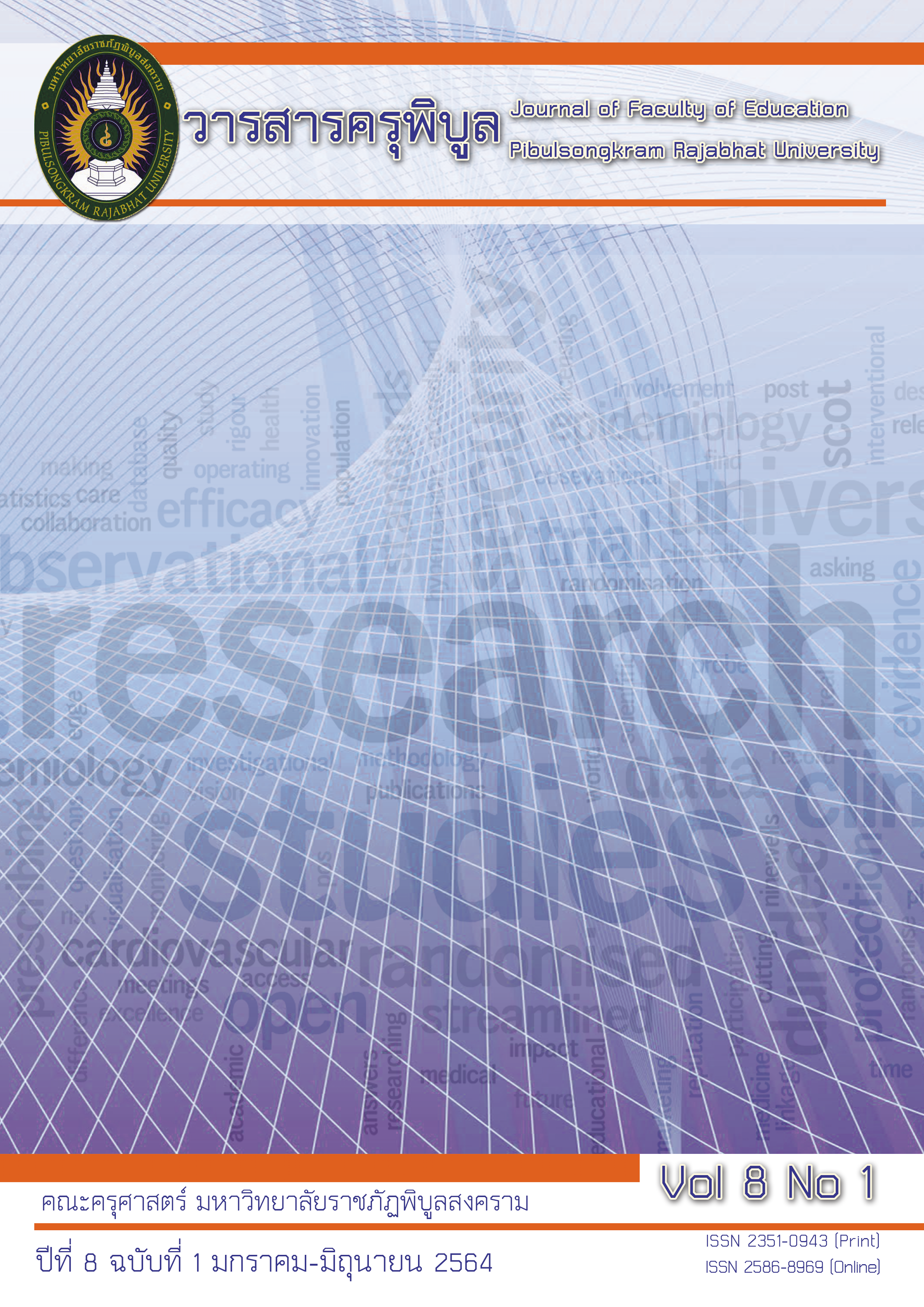The Development of Learning Model To Enhance System Thinking Process for Grade 9 Students
Keywords:
Development, Learning Model, History, System Thinking ProcessAbstract
The purpose of this research was to Development of Learning Model To Enhance System Thinking Process for Grade 9 Students. The study was performed according to the experimental research procedures which were divided into 2 phases. The first phase was to design and evaluate the Learning Model To Enhance System Thinking Process to check the quality of Learning Model To Enhance System Thinking Process for Grade 9 Students., and the second phrase was experiment a Learning Model To Enhance System Thinking Process for Grade 9 Students. The research instruments were 1) a Learning Model To Enhance System Thinking Process for Grade 9 Students , 2) a Behavior observation form and a pre-test and post-test
Results showed as follows 1. The Learning Model To Enhance System Thinking Process for Grade 9 Students included five factors as 1) principles and theories, 2) purposes, 3) contents, 4) instructional process, and 5) evaluation. The instructional process included 5 steps 1) Situations provoking problems, 2) Understanding the problem and seeking information, 3) Diagramming, 4) present and 5) evaluation. 2. The students responded to the Behavior observation form and did posttest. 2.1 The students were pass the 75 percent criterion at 84.54 level. 2.2 The students’s achievement after learning with the model was higher than it was before learning at the .05 level.
References
2. มนตรี แย้มกสิกร (2546). การพัฒนารูปแบบการสอนเพื่อพัฒนาการคิดเชิงระบบของนิสิตระดับปริญญาตรี สาขาเทคโนโลยีทางการศึกษา. ปริญญานิพนธ์การศึกษาดุษฎีบัณฑิต (สาขาการวิจัยและพัฒนาหลักสูตร). กรุงเทพฯ: มหาวิทยาลัยศรีนครินทรวิโรฒ.
3. เรขา อรัญวงศ์. (2543). รูปแบบการสอน (Models of Teaching. (พิมพ์ครั้งที่ 2). กำแพงเพชร: มหาวิทยาลัยราชภัฏกำแพงเพชร.
4. ทิศนา แขมมณี. (2550). ศาสตร์การสอน. (พิมพ์ครั้งที่ 6). กรุงเทพฯ : ด่านสุทธาการพิมพ์.
5. ทิศนา แขมมณี. (2555). ศาสตร์การสอน: องค์ความรู้เพื่อการจัดกระบวนการเรียนรู้ที่มี ประสิทธิภาพ (พิมพ์ครั้งที่ 15). กรุงเทพฯ: จุฬาลงกรณ์มหาวิทยาลัย.
6. ประพันธ์ศิริ สุเสารัจ. (2553). การพัฒนาการคิด. (พิมพ์ครั้งที่ 4). กรุงเทพฯ : ห้างหุ้นส่วนจำกัด 9119 เทคนิค พริ้นติ้ง.
7. ราชบัณฑิตยสถาน. (2546). พจนานุกรมราชบัณฑิตยสถาน พ.ศ. 2542. กรุงเทพฯ: นานมีบุ๊คพับลิเคชั่นส์.
8. สภาพัฒนาเศรษฐกิจและสังคมแห่งชาติ. (2560). แผนพัฒนาเศรษฐกิจและสังคมแห่งชาติ ฉบับที่ 12 (2560-2564). กรุงเทพฯ: สำนักงานพัฒนาเศรษฐกิจและสังคมแห่งชาติ.
9. สำนักงานคณะกรรมการการพัฒนาเศรษฐกิจและสังคมแห่งชาติ (2560). แผนการศึกษาเศรษฐกิจและสังคมแห่งชาติฉบับที่ 12 พุทธศักราช 2560-2564. กรุงเทพฯ: สำนักงานพัฒนาเศรษฐกิจและสังคมแห่งชาติ.
10. สำนักงานคณะกรรมการการศึกษาแห่งชาติ.(2552). แผนการศึกษาแห่งชาติฉบับปรับปรุงพุทธศักราช 2552-2559. กรุงเทพฯ: พริกหวานกราฟิก.
11. Joyce, B., & Weil, M. (1996). Models of teaching (5th ed.). London: Allyn and Bacon.
12. National Center for History in the Schools. (1996). National standards for history : Basic edition.(pp. 27). Los Angeles, CA : NCHS at the University of California.



